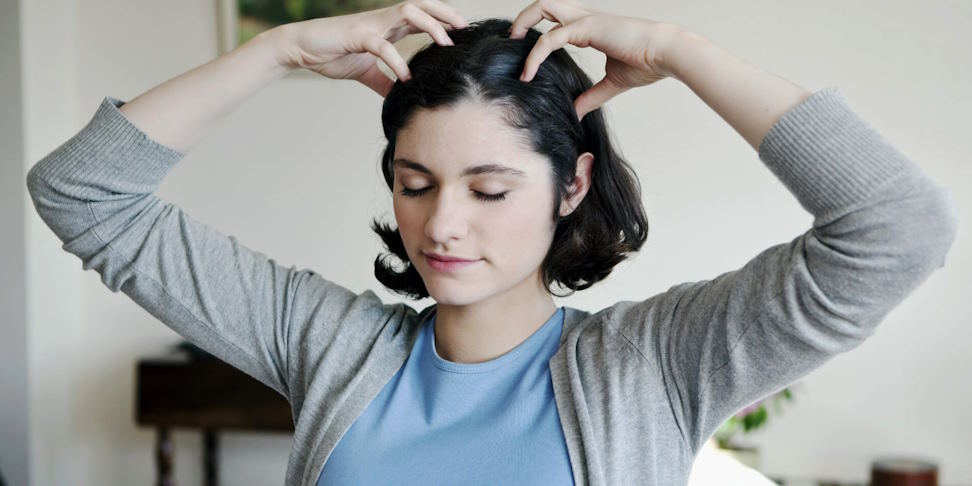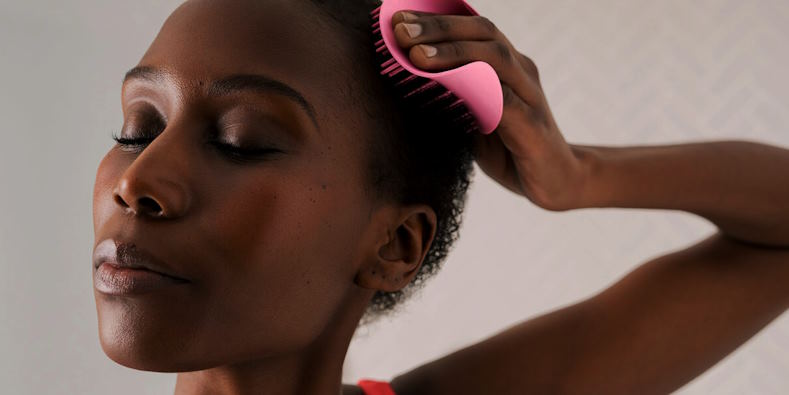Here we speak about a widespread procedure, cherished for its ability to elevate hair and scalp well-being.
Ways a scalp massage can make hair better
Elevated Circulatory Flow
This method acts as a trigger, augmenting blood flow to your scalp and enabling the transportation of needed nutrients and oxygen to the hair follicles. Such heightened circulation strengthens the roots of the hair, nurturing faster and radiant hair growth.
Enhanced Nutrient Delivery
Through its promotion of blood circulation, such massage becomes a conduit for essential nutrients like vitamins and minerals to efficiently reach the hair follicles. This process enhances hair health, fostering attributes such as heightened thickness, lustrous shine, and enhanced resilience.
Reduction of Stress Hormones
Scalp massage has been shown to reduce levels of stress hormones, such as cortisol, in the body. Lower stress levels can help prevent hair loss and minimize scalp conditions triggered or exacerbated by stress, such as dandruff or itching.

Release of Tension
Massaging the scalp helps to release tension and tightness in the scalp muscles, which can improve overall scalp health. Tension-free scalp muscles create a more conducive environment for hair growth and reduce the risk of hair breakage and thinning.
Stimulation of Sebum Production
Gentle scalp massage can stimulate sebum production, the natural oil the scalp produces. Sebum helps to moisturize the scalp and hair, preventing dryness and promoting hair strength and elasticity.
How often should I do a scalp massage?
The frequency of scalp massage depends on individual factors such as hair type, scalp condition, and personal preference.
Massaging the scalp several times a week can be beneficial for general scalp health and hair maintenance. This frequency allows for regular stimulation of blood flow, distribution of natural oils, and relaxation of scalp muscles. Some individuals may massage their scalp daily, particularly if they have a dry scalp or want to promote hair growth. Others may find that massaging the scalp before washing their hair or during their hair care routine suits their needs.
It’s essential to listen to your scalp’s response and adjust the frequency of massage accordingly. Over-massaging or aggressive massage techniques can irritate the scalp, so finding a balance that feels comfortable and supportive of your scalp and hair health is necessary.

